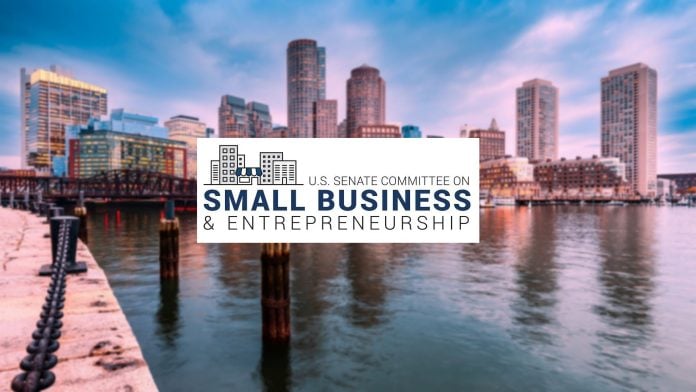The recent surge in tariffs has raised alarms among small business owners across Massachusetts, prompting an urgent response from the state’s congressional delegation. Led by Ranking Member Edward J. Markey, lawmakers are requesting critical data from the Federal Reserve Bank of Boston regarding the effects of these tariffs, particularly on small firms.
The letter highlights the pressing issue that small businesses are grappling with rising input costs and unpredictable pricing, which could jeopardize their competitiveness. “Small firms across Massachusetts tell us they face rising input costs and price uncertainty, and they question how much of those costs they can pass on to customers without losing sales,” the lawmakers express, underscoring the tightrope small businesses must walk in an increasingly challenging economic landscape.
One of the primary concerns is how these tariff-related costs play out differently across various sectors and company sizes. The lawmakers are asking for crosstabulations that will provide insights into the impacts by industry, importer status, and firm size. This type of data could prove invaluable for small business owners navigating their pricing strategies amidst fluctuating costs. By understanding which sectors are most affected, businesses can make more informed decisions about pricing and budgeting.
Furthermore, the letter seeks to ascertain whether the financial pressures from these tariffs are affecting hiring practices, wage decisions, and even plans for expansion or closure. If small businesses are struggling to keep their heads above water due to rising costs, this could limit their ability to invest in growth or maintain staffing levels, a significant concern for the broader economy.
The lawmakers are particularly concerned about the data specific to New England and Massachusetts, where localized economic conditions may amplify the effects of national policy. This targeted insight could assist small business owners in better understanding their market dynamics and adjusting their strategies accordingly.
While the ongoing discussions around tariffs are essential, they hold real implications for day-to-day operations within small businesses. Owners must consider whether to absorb increased costs, pass them on to consumers, or seek alternative suppliers to mitigate impacts. It’s a precarious balance; pushing prices too high could drive away customers, while absorbing costs could hurt profit margins.
Ranking Member Markey has previously introduced the Small Business Liberation Act, which aimed to exempt small enterprises from the broadly imposed tariffs. This legislation, however, faced opposition and was blocked on the Senate floor. Such legislative efforts highlight the need for small businesses to rally around supportive measures to shield them from the adverse impacts of tariffs.
As pressure mounts from tariff-related issues, small businesses may want to proactively engage with local chambers of commerce or industry groups to voice their specific concerns. Collective action can amplify their needs to policymakers and potentially yield better support and resources.
For business owners seeking strategic pivots in response to these tariff challenges, understanding the landscape is critical. Utilizing data to inform decision-making and exploring alternative business models or supply chains could offer new opportunities for resilience.
The potential ripple effects of tariffs extend beyond immediate costs; they influence hiring, growth, and ultimately the livelihoods tied to small enterprises. This intricate web of economic pressures necessitates further scrutiny and support from federal entities.
As Congress continues to examine these issues, small business owners must remain informed and adaptable, navigating the uncertain landscape while seeking opportunities to thrive. For further information, the original press release can be accessed here.
Image Via Envato: SeanPavone



